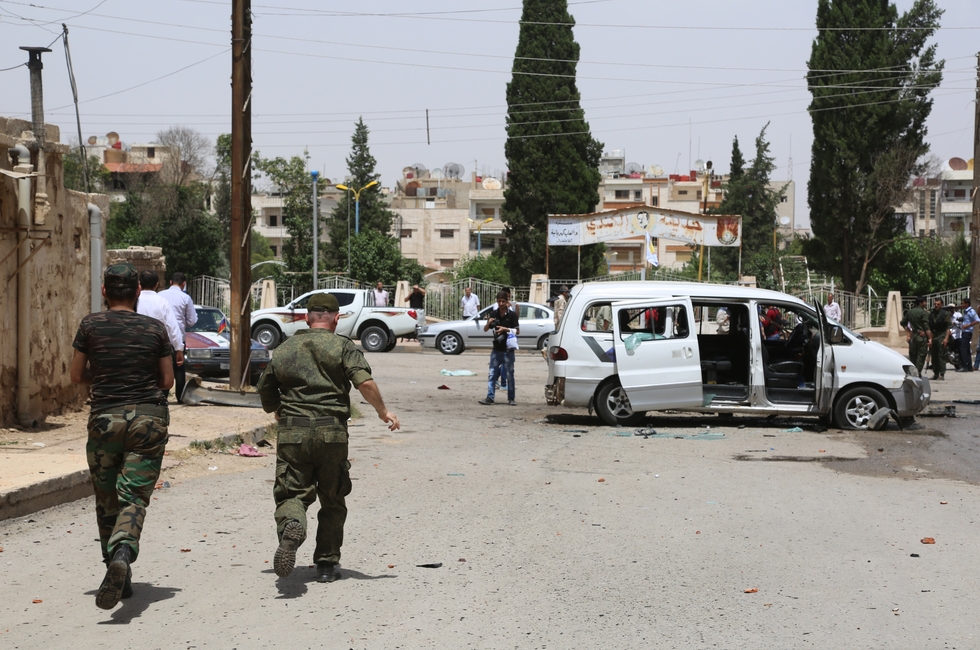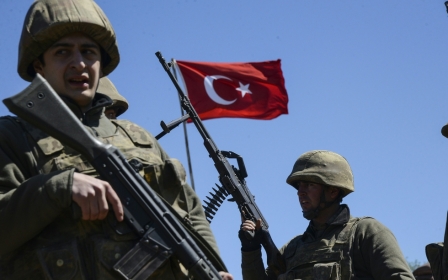Suicide attack in Syria kills three at memorial for Christian massacre

Three people were killed in northeast Syria on Sunday when a suicide bomber attacked an event commemorating the massacre of Christians more than a century ago, state media and a security source said.
The attack in the city of Qamishli took place as locals gathered at a hall to commemorate the deaths of tens of thousands of Christians by the Ottoman army starting in 1915 in what is known as the Sayfo (Sword) massacre.
A photographer working with AFP and attending the event said he heard the blast and saw pieces of flesh lying next to damaged cars.
"The suicide attacker tried to enter the hall where people were gathered but was stopped by local security forces, and he detonated himself among them," a security source at the scene told AFP.
The security forces belonged to the Sotoro, a Christian militia based in Syria's northeast.
"Three Sotoro members were killed and five wounded," the security source said.
One Sotoro member told AFP that the suicide bomber "detonated himself near our checkpoint after he couldn't reach his real target, Patriarch Ignatius."
Patriarch Ignatius Aphrem II is the head of the Syriac Orthodox church and was leading the commemoration.
Syria's state news agency SANA also reported three people killed in a "terrorist suicide explosion" in Qamishli, but did not specify whether they were civilians or security forces.
Situated along the border with Turkey, Qamishli has been regularly targeted by suicide bombings, many of which have been claimed by the Islamic State group.
Control of the Kurdish-majority city is split between Kurdish militia and pro-government fighters.
Syriac Christians belong to the eastern Christian tradition and pray in Aramaic. They include both Orthodox and Catholic branches, and constitute around 15 percent of Syria's 1.2 million Christians.
Middle East Eye propose une couverture et une analyse indépendantes et incomparables du Moyen-Orient, de l’Afrique du Nord et d’autres régions du monde. Pour en savoir plus sur la reprise de ce contenu et les frais qui s’appliquent, veuillez remplir ce formulaire [en anglais]. Pour en savoir plus sur MEE, cliquez ici [en anglais].




